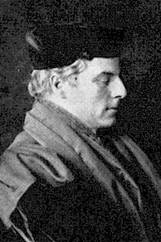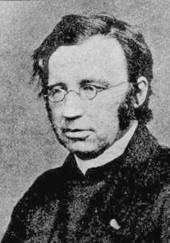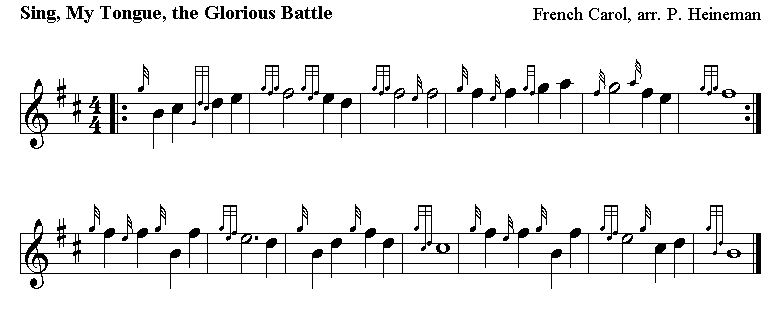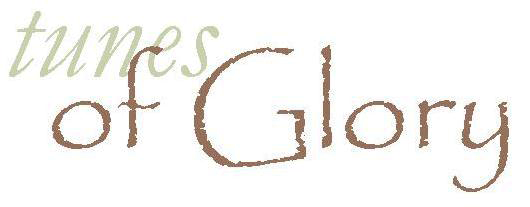
Best viewed in
Internet Explorer
Music (PDF)
Midi
Music (BMW)
Back to

Updated
09/08/2020 |
Sing, My
Tongue, the Glorious Battle

Percy Dearmer |
The words
to “Sing, My Tongue, the Glorious Battle” were written by
Venantius Honorius Clementianus Fortunatus (530-609).
Fortunatus converted to Christianity at an early age, at
Aquileia. While a student at Ravenna, he became almost
blind, but recovered his sight, as he believed
miraculously, by anointing his eyes with oil taken from a
lamp that burned before the altar of St. Martin of Tours. His
recovery induced him to make a pilgrimage to the shrine of
St. Martin at Tours, in 565. He remained in Gaul the rest of
his life.
At
Poitiers, he formed a romantic, though purely platonic,
attachment for Queen Rhadegunda, daughter of Bertharius,
king of Neustria. As a result of her influence,
Fortunatus was eventually ordained and, after
Rhadegunda’s death, became bishop of Poitiers shortly
before his own death in 609.
The words were translated from Latin by Percy Dearmer (1867-1936)
and John Mason Neale (1818-1866).
Dearmer attended Westminster School and Christ
Church, Oxford (BA 1890, MA 1896). He was ordained an
Anglican deacon in 1891, priest in 1892, and served as Vicar
of St. Mary the Virgin in Primrose Hill, London (1901-1915). |

John Neal |
In World War
I, he was a Red Cross chaplain in Serbia. In 1916, he worked with the
Young Men’s Christian Association in France. In 1916 & 1917, he
joined the Mission of Help in India. In 1919, he was appointed
professor of ecclesiastical art at King’s College, London. In
1931, he became a canon of Westminster Abbey.
We know John Mason Neale today as a
hymnographer, the translator or adapter of ancient and medieval
hym.

Lyrics by Venantius Fortunatus
| |
Sing, my tongue, the
glorious battle,
Sing the ending of the fray;
Now above the cross, the trophy,
Sound the loud triumphant lay:
Tell how Christ the world’s Redeemer,
As a victim won the day.
He, our Maker, deeply
grieving
That the first made Adam fell,
When he ate the fruit forbidden
Whose reward was death and hell,
Marked e’en then this Tree the ruin
Of the first tree to dispel.
Tell how, when at
length the fullness,
Of th’appointed time was come,
Christ, the Word, was born of woman,
Left for us His heavenly home;
Showed us human life made perfect,
Shone as light amid the gloom.
Lo! He lies an Infant
weeping,
Where the narrow manger stands,
While the Mother-Maid His members
Wraps in mean and lowly bands,
And the swaddling clothes is winding
Round His helpless feet and hands.
Thus,
with thirty years accomplished,
Went He forth from Nazareth,
Destined, dedicated, willing,
Wrought His work, and met His death.
Like a lamb He humbly yielded
On the cross His dying breath. |
There the nails and
spears He suffers,
Vinegar, and gall, and reed;
From His sacred body piercèd
Blood and water both proceed;
Precious flood, which all creation
From the stain of sin hath freed.
Faithful cross, thou
sign of triumph,
Now for us the noblest tree,
None in foliage, none in blossom,
None in fruit thy peer may be;
Symbol of the world’s redemption,
For the weight that hung on thee!
Bend thy boughs,
O tree of glory!
Thy relaxing sinews bend;
For awhile the ancient rigor
That thy birth bestowed, suspend;
And the King of heavenly beauty
On thy bosom gently tend!
Thou alone wast
counted worthy
This world’s ransom to sustain,
That a shipwrecked race forever
Might a port of refuge gain,
With the sacred blood anointed
Of the Lamb of sinners slain.
To the Trinity be
glory
Everlasting, as is meet:
Equal to the Father, equal
To the Son, and Paraclete:
God the Three in One, whose praises
All created things repeat.
|
|




